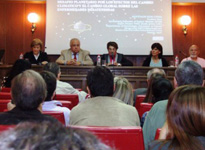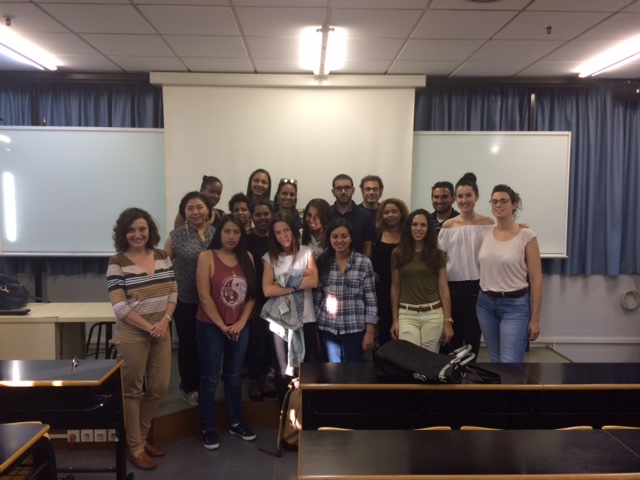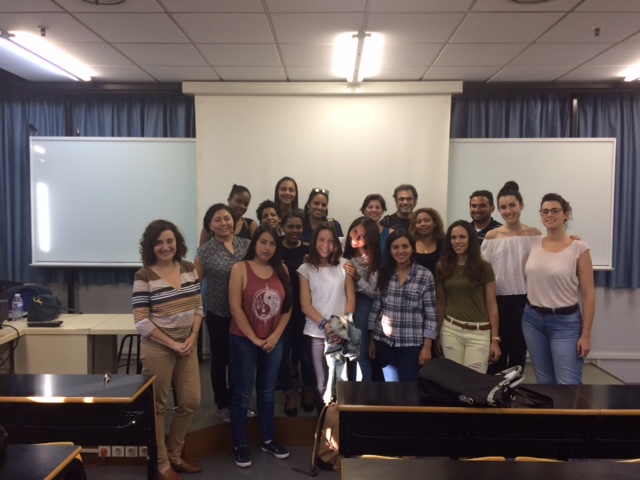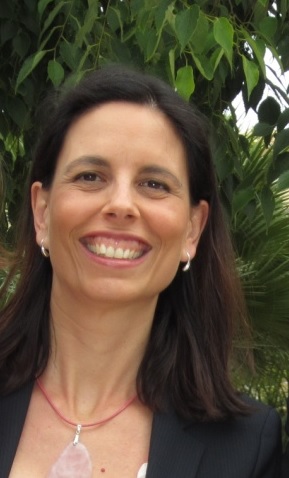
The UV full university professor on Parasitology and head of the Master’s Degree in Tropical Parasitic Diseases of the UV, Santiago Mas-Coma, was in charge of starting the Session on microbiome, microbiota and immunity, which took place at the Doctors School of Castellon, who organised the event attended by a high number of medical professors. The school’s vice-president, Marta Faubell, was in charge of presenting the act, which also counted with the presence of Federico García Moliner, Prince of Asturias Award.
4 december 2015
The act tackled topics of professional and scientific interest, such as the different aspects related to the microbiome, the set of microbes (bacterias, virus or parasites) which are a part of the human being and, as stated by the WHO (World Health Organisation), Mas-Coma, ‘they are also being affected by climate and global change’.
The doctor’s session dealt with the document entitled “La hoja de ruta de la OMS 2015-2020 y el desafío planetario por los efectos del cambio climático, el calentamiento, y el cambio global sobre las enfermedades desatendidas” (‘2015-2010 WHO Guidelines and the planetary challenge because of climate change, heating and global change effects on neglected diseases’, a document which allows adopting solutions thanks to the diagnosis of the 17 disease groups which affect more people in the world. These guidelines analyse the illnesses and explain how to eradicate them.
The full university professor stated that along with climate’s changing aspects, it is important to take into account the consequences of human action derived from the construction of facilities which alter our environment or from the importation of cattle and pets as pathogen carriers.
Lastly, Mas-Coma, who was also a part of the group of experts who advised the Spanish Government on the Ebola epidemic, assured that Europe ‘has means and knows how to use them in order to fight viruses’ and bacterias’ adverse effects’.
The session also counted with voices such as that of María Victoria Márquez, doctor at the Hospital General Universitario de Castelló and Microbiology professors at the UJI, who analysed microbiomes as genetic heritage of human macrobiota; Doctor Tomás Álvaro, from the Pathological Anatomy Service of the hospital Verge de la Cinta de Tortosa, who talked about microbiotica and nutrition and microbiotica and mental health; and the coordinator of the work group Terapias Médicas no Convencionales (Non-Conventional Medical Therapies), María Luisa Morales, who positively valued each of the attending professional’s intervention at the round table.











